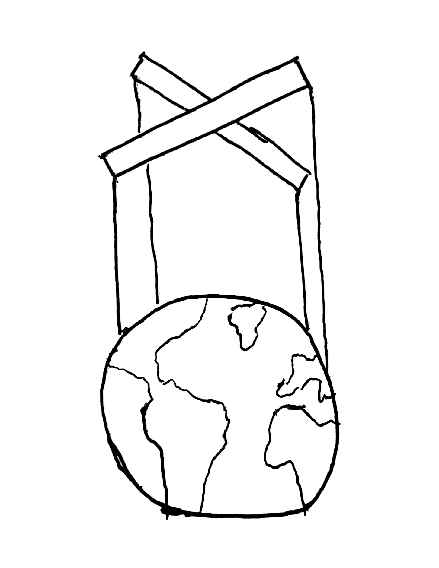
on the two options (9/19)
Chances are, even if you’re not familiar with philosophy, you’ve heard of the cogito sum. If you’re a Blade Runner fan, you’ve heard of it. If you’re familiar with Monty Python, you’ve probably heard it here and there. There’s even a little cheeky reference to it in The Office (the U.K. version, however).
First proposed by Descartes in the 17th century, the cogito is often translated in popular culture to “I think, therefore I am.”
While very easily digestible, and getting the gist of the topic, this statement is not entirely accurate. Take it from the man himself:
“So that after having reflected well and carefully examined all things, we must come to the definite conclusion that this proposition: I am, I exist, is necessarily true each time that I pronounce it, or that I mentally conceive it.”
After a lengthy and fairly pernicious discussion, the cogito was used to support Descartes’ of dualism, that the mind and body belong in two separate realms and would reach varying conclusions at all times. The world falls under these two categories, mind and body, and nothing was to escape them.
Val Plumwood elevated the concept of dualisms in her much, much more recent book Feminism and the Mastery of Science (which I discussed in a fairly controversial guest post), generalizing that dualisms are structures that we encounter in our everyday lives. Rather than the metaphysical domains of mind and body, dualisms are plural norms that impact practically every aspect of our society–man or woman, reason or emotion, human or nature.
I was never a fan of Descartes’ notion of dualism, for a wide variety of reasons. Plumwood’s notion, however, was much more plausible to me, and something to be found in realms ranging from public policy all the way to mental health.
What Plumwood implies that Descartes doesn’t, or wasn’t willing to consider, was that these dualisms have wide spreading societal implications through stigmas. Dualisms themselves are a sense of stigmas in which reduces a large, diverse group of people or things down to two categories, both of which are not compatible with each other. The most prevalent example of this is the stigmatization of mental health. Those who are diagnosed as mentally ill are seen as the out-group as compared to the control group of those not diagnosed.
Dualisms aren’t just categories that describe the world–they shape it. The key lies not in destroying all dualisms–there’s a reason why it’s stuck around for centuries–but in recognizing it as a tool, not a truth.
The true evolution of Descartes’ thought is not in doubting our existence or dissecting it, but in questioning the very frameworks in which we perceive that existence. And in a world complex enough to want to simplify it, why settle for just two options?